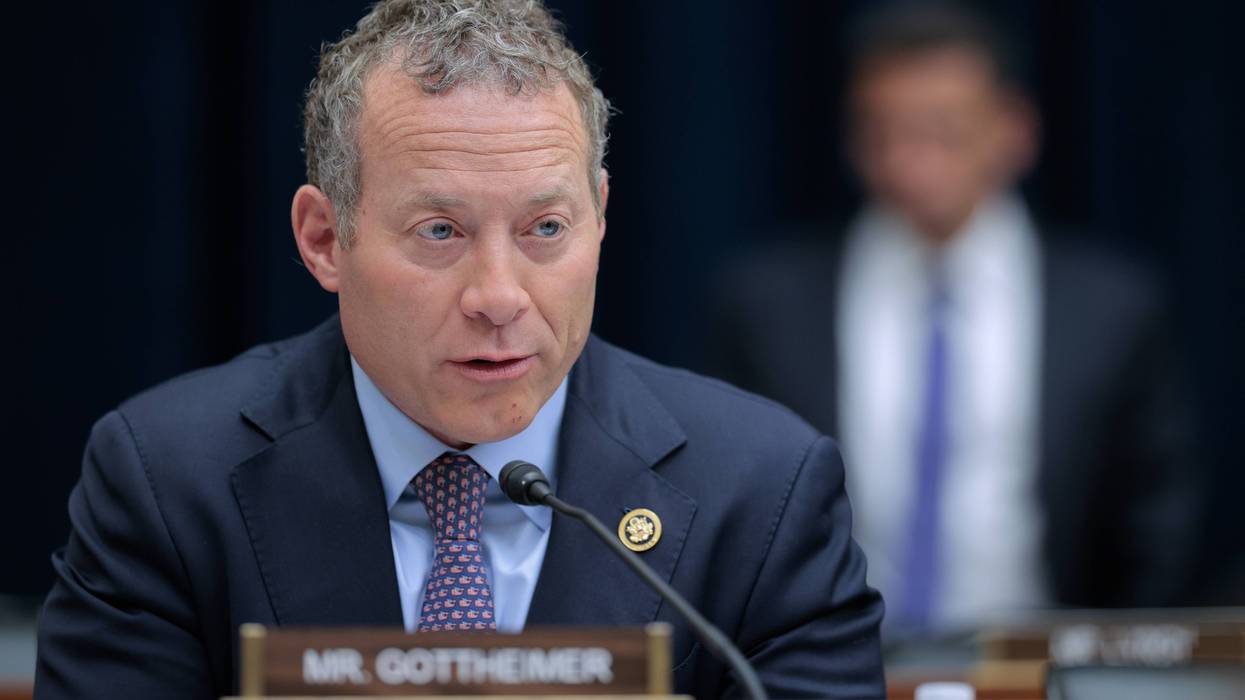April, 23 2015, 01:00pm EDT
US Drone Killed Two Hostages: Reprieve Comment
NEW YORK
Commenting on today's news that a US drone mistakenly killed two hostages, an Italian and an American, in a January strike, Reprieve US attorney Alka Pradhan, who represents other civilian victims of drone attacks, said:
"It's right that the White House has come clean and admitted its tragic mistake in killing these hostages, and our hearts go out to their families.
"It's worth remembering, however, that Dr. Weinstein and Mr Lo Porto are far from the first innocents to die by our drones, and in no other case has the US apologized for its mistake.
"The White House is setting a dangerous precedent - that if you are Western and hit by accident we'll say we are sorry, but we'll put up a stone wall of silence if you are a Yemeni or Pakistani civilian who lost an innocent loved one. Inconsistencies like this are seen around the world as hypocritical, and do the United States' image real harm.
"Greater transparency is just the start of what we need: we also need a fundamental reassessment of whether the secret drone war does more harm than good."
Reprieve is a UK-based human rights organization that uses the law to enforce the human rights of prisoners, from death row to Guantanamo Bay.
LATEST NEWS
Democratic Lawmakers Demand Probe Into DHS Warrantless Location Tracking
“Location data is extremely sensitive, and can reveal someone’s religion, their political views, medical conditions, addictions, and with whom they spend time."
Mar 03, 2026
Over 70 Democratic US lawmakers on Tuesday demanded a new investigation into warrantless purchases of Americans' location data by Department of Homeland Security agencies—including Immigration and Customs Enforcement—which critics say violate the Fourth Amendment prohibition of unwarranted search and seizure.
In a letter to DHS Inspector General Joseph Cuffari, 72 congressional Democrats led by Sen. Ron Wyden (D-Ore.) and Rep. Adriano Espaillat (D-NY) wrote, "Public contracting documents indicate that Immigration and Customs Enforcement (ICE) recently resumed buying Americans’ location data from a shady data broker" after the agency "ended a previous program to purchase Americans’ cellphone location data in 2023, following an investigation by your office and scrutiny from Congress."
"Location data is extremely sensitive, and can reveal someone’s religion, their political views, medical conditions, addictions, and with whom they spend time," the lawmakers' letter states. "It is for that reason that ordinarily, the government must obtain a warrant from a judge in order to demand such data from phone or technology companies."
While the Fourth Amendment generally prohibits the government from searching or obtaining Americans' private information without a warrant, federal agencies have circumvented the proscription by buying sensitive personal data from private brokers.
"Public reports indicate that ICE has resumed its location data purchases, even though DHS has yet to adopt all of the recommendations from your prior review," the lawmakers noted in their letter.
The letter continues:
ICE issued a no-bid contract to the surveillance company PenLink in 2025, which included licenses for its location tracking product, Webloc, according to press reports. Webloc was developed by the controversial surveillance company Cobwebs Technologies, which was combined with Nebraska-based PenLink as part of a $200 million private equity deal in 2023. Cobwebs gained notoriety when Meta banned the company in 2021, as part of a crackdown on surveillance mercenaries after detecting the company’s customers targeting activists, opposition politicians, and government officials in Hong Kong and Mexico.
ICE is now stonewalling congressional oversight into its purchase of location data. Sen. Wyden’s office requested a briefing from ICE soon after this contract was revealed in the press, in October, which was scheduled in December, for February 10, 2026. One day before that briefing was to take place, ICE canceled it with no explanation and without any offer to reschedule.
"Given DHS’ failure to adopt a policy for the use of commercial data, coupled with ICE awarding a no-bid contract to a shady data broker that is likely violating federal law, we urge you to open another investigation into the purchase," the lawmakers wrote.
The letter asks:
- Whether ICE and other DHS components are purchasing illegally obtained location data about Americans;
- If so, why does DHS not have policies in place to prevent taxpayer dollars from going to contractors that have invaded Americans’ privacy in violation of federal law;
- How ICE and other DHS components have used location data and whether they have used it to investigate Americans for engaging in constitutionally protected activities, including protesting or monitoring ICE operations;
- Whether ICE and other DHS components are auditing employee access to commercial location data to identify likely patterns of abuse; and
- Why has DHS still not adopted a policy for the use of commercial location data, as you recommended in 2023?
As the Electronic Frontier Foundation (EFF) recently explained, ICE has spent $5 million on Webloc and Tangles, another location and social media surveillance product made by PenLink.
According to EFF:
Webloc gathers the locations of millions of phones by gathering data from mobile data brokers and linking it together with other information about users. Tangles is a social media surveillance tool which combines web scraping with access to social media application programming interfaces. These tools are able to build a dossier on anyone who has a public social media account. Tangles is able to link together a person’s posting history, posts, and comments containing keywords, location history, tags, social graph, and photos with those of their friends and family. PenLink then sells this information to law enforcement, allowing law enforcement to avoid the need for a warrant. This means ICE can look up historic and current locations of many people all across the US without ever having to get a warrant.
There have been several attempts to solidify restrictions on government purchase of Americans' personal data in recent years, most notably the Fourth Amendment Is Not for Sale Act (FANFSA), which failed to pass.
Last month, Sens. Dick Durbin (D-Ill.) and Mike Lee (R-Utah) introduced the Security and Freedom Enhancement Act, which would reauthorize Section 702 of the Foreign Intelligence Surveillance Act but is also intended to protect Americans from warrantless spying, including by closing the data broker loophole that lets law enforcement buy their way around the Fourth Amendment.
Also last month, Rep. Shontel Brown (D-Ohio) led 13 Democratic lawmakers who sent a separate letter to Homeland Security Secretary Kristi Noem seeking answers about ICE's use of PenLink surveillance technology "designed to collect and analyze cellphone location data across entire neighborhoods."
"Mass surveillance of entire communities or city blocks raises serious questions about data privacy and potential violations of civil liberties," Brown wrote.
"Americans should be able to trust their government to uphold the Constitution and respect fundamental rights," she added. "Instead, DHS appears to be engaging in broad surveillance practices to monitor entire communities, violating Americans’ fundamental civil rights and civil liberties to punish dissent and advance the president's cruel and unconstitutional mass deportation agenda."
Keep ReadingShow Less
Competing Dem War Powers Resolution Would Give Trump a Monthlong Free Pass in Iran
"The American people are firmly against this war and will see straight through this ruse," said one campaigner.
Mar 03, 2026
As the House of Representatives faces mounting pressure to pass Congressmen Ro Khanna and Thomas Massie's war powers resolution to end the US-Israeli assault on Iran, six right-wing Democrats on Tuesday introduced a competing bill that would give President Donald Trump a green light to keep waging war in the Middle East for the next month.
Khanna (D-Calif.) and Thomas Massie (R-Ky.) have been pushing for their H.Con.Res.38 since shortly before Trump bombed Iranian nuclear facilities last June. Trump and Israeli Prime Minister Benjamin Netanyahu's Saturday attack has ramped up demands for Congress to pass that resolution, along with S.J.Res.59, introduced last year by Sen. Tim Kaine (D-Va.).
Those resolutions, expected to receive votes this week, were already facing uphill battles in both Republican-controlled chambers, and all-but-certain vetoes if they ever made it to Trump, whose administration claims "Operation Epic Fury" is about preventing a nuclear-armed Iran, while critics around the world accuse him and Netanyahu of engaging in an illegal regime change war.
At least six US service members and hundreds of Iranians are now dead. Despite the rising death toll, the Democrats behind the new proposal—Reps. Jim Costa (Calif.), Henry Cuellar (Texas), Jared Golden (Maine), Josh Gottheimer (NJ), Greg Landsman (Ohio), and Jimmy Panetta (Calif.)—made clear that they oppose a swift end to the conflict.
"There is a concern that the Khanna-Massie war powers resolution currently requires the immediate withdrawal of US forces, even while Iran is actively targeting American troops, assets, embassies, and our allies across the region," they said in a statement. "It is vital that we allow for a safe transition, that protects our service members, embassies, and allies, not a potentially precarious withdrawal."
While proposing a 30-day window for ending the conflict—absent an authorization for the use of military force or a formal declaration of war from Congress—the six Democrats also said that "an open-ended commitment by the administration and the recent implication from the secretary of defense that ground troops may be engaged are both unacceptable."
Politico called the new measure "a sign of how some Democrats are struggling to reconcile their opposition to the Trump administration's military action with a desire to appear hawkish on national security—even in a largely symbolic capacity."
The outlet also noted that when asked about the latest proposal during a Tuesday news conference, House Minority Leader Hakeem Jeffries (D-NY) said that "our focus is on the resolution that will be on the floor this week."
"We'll continue to make the strongest possible case," Jeffries added. "There is going to be very strong Democratic support for the war powers resolution across the ideological spectrum."
Cavan Kharrazian, a senior policy adviser at the grassroots group Demand Progress, was far more critical, declaring that "of course Democrats who raced to applaud Trump's illegal war in Iran, and in one case was pardoned by him, would draft a pro-war war powers resolution meant to sabotage the real war powers resolution receiving a vote this week."
"This Trojan horse resolution attempts to give Trump a free pass to continue waging an unauthorized war in Iran for a whole month—exactly the amount of time that Trump has said he expects the war to last," he warned. "The American people are firmly against this war and will see straight through this ruse."
"Representatives need to ignore this bad-faith distraction," Kharrazian argued, "and vote for the bipartisan Khanna-Massie resolution that will actually stop this illegal war and bring our troops home."
Keep ReadingShow Less
‘These Guys Can’t Help Themselves’: Cruz Pushes $200 Billion Capital Gains Tax Cut Without OK From Congress
Republican senators said they were seeking to end an "unfair inflation tax on everyday Americans." But nearly all the benefits of their proposal would go to the wealthiest 1%.
Mar 03, 2026
Two leading Republicans are pushing for the Trump administration to issue another $200 billion tax cut, primarily to the wealthiest Americans, without congressional approval.
The Washington Post reported Tuesday that Sens. Ted Cruz (R-Texas) and Tim Scott (R-SC) sent a letter to Treasury Secretary Scott Bessent urging him to use executive authority to lower the federal tax on capital gains—the profits from selling stocks, bonds, real estate, and other investments.
The senators have proposed that capital gains taxes should be “indexed for inflation." As the Post explained:
The plan pushed by Cruz and Scott has been sought by conservatives for many years. Under current law, an investor who bought $100 worth of stock in 1990 and sold it today for $300 would currently owe capital gains taxes on the full $200 in profit. But the $100 investment in 1990 would be worth roughly $230 in today’s dollars after accounting for inflation. Under the Cruz-Scott proposal, the investor would only owe taxes on that $70, rather than the full $200.
The senators called on Bessent to "eliminate" this "unfair inflation tax on everyday Americans."
According to Federal Reserve data from 2025, the richest 1% of Americans owned about half of all stocks, while the poorest 50% owned only 1%.
Republicans' so-called One Big Beautiful Bill Act (OBBBA), which enacted massive cuts to social programs like Medicaid and the Supplemental Nutrition Assistance Program (SNAP) last summer, is already estimated to funnel more than $1 trillion to the top 1% of earners over the next 10 years, according to the Institute on Taxation and Economic Policy.
It is unclear whether Bessent would even have the power to change how gains are taxed without an act of Congress, or if Bessent has any interest in doing so. But the vast majority of the benefits from Cruz and Scott's proposal, if enacted, would likely go to the rich as well.
When the Trump administration first considered indexing capital gains taxes to inflation back in 2018, the Penn Wharton Budget Model projected that 63% of the benefits would flow to the richest 0.1%—those making tens of millions per year—while 86% would go to the top 1%.
Those in the bottom 90% of earners would see just over 2% of the overall benefits, with those in the bottom half receiving basically nothing.
According to the Post, the senators view lowering capital gains taxes as part of a GOP bid to "improve its economic approval rating with voters ahead of the 2026 midterm elections," in which the party is expected to take a walloping, according to current polls.
Voters have not responded kindly to previous bills that handed lavish tax breaks to the rich. At the time of its passage, the OBBBA was one of the least popular pieces of legislation in modern history, with several polls showing nearly a 2-to-1 disapproval rating.
But Cruz and Scott are pushing for this policy change despite the public revulsion and the fact that the Department of Justice has previously ruled that the Treasury Department can't make policy without Congress' approval.
"Ted Cruz is asking the Treasury Department to break the law to give another round of tax breaks to the ultrarich," remarked Sen. Ron Wyden (D-Ore.), the ranking member of the Senate Finance Committee. "These guys can't help themselves."
Keep ReadingShow Less
Most Popular


